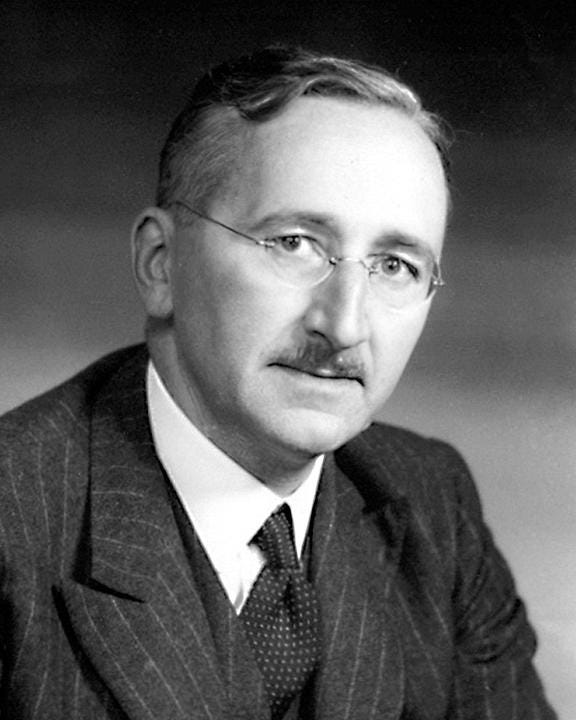You Don't Know How to Make a Peanut Butter and Jelly Sandwich
You think you do, but you really don't!
In a few of my classes1, I teach an economics article by Friedrich Hayek entitled ‘The Use of Knowledge in Society’ to illustrate that much of what is known is distributed throughout the population. Hayek’s basic point is that one cannot accumulate and aggregate localized knowledge, despite what people often think about their ability to plan an economy or society. And, of course, there are significant implications for how to think about the distribution of knowledge, foreign policy, and economics if we take Hayek seriously.
One way to illustrate Hayek’s insights about distributed knowledge is to make a statement that, while accurate, strikes many as bizarre and false: you don’t know how to make a peanut butter and jelly sandwich2. In one of my classes, a student was so perturbed by such a claim that he fished a peanut butter and jelly sandwich from his sack lunch, almost as if he was trying to prove me wrong by demonstration (‘not only can I make a peanut butter and jelly sandwich, I did’). His reaction, while mistaken, was understandable.
Of course, in a thin sense, one can make a peanut butter and jelly sandwich by simply assembling a few items into a sandwich. However, there is a deeper sense in which one doesn’t know how to make a peanut butter and jelly sandwich. A student in a different class doubled-down on her claim that she could in fact make a peanut butter and jelly sandwich by simply assembling three simple ingredients: peanut butter, jelly, and bread. This should strike the thoughtful reader as puzzling: how can one know how to make something when they don’t know how to make the essential part of that thing? It seems they couldn’t.
There are many ingredients to a peanut butter and jelly sandwich, not to mention the components needed to process, pack, and ship those ingredients. Start with the bread: to make the bread one would need to know things like how to domesticate wheat, how to produce farm equipment to grow and harvest the wheat, how to produce fertilizer—along with the equipment required to manufacture farm equipment and tools. Just think about the many inputs needed to produce the rubber that makes up the tires on the tractor one may use to harvest what. And that’s just some aspects of producing wheat, not to mention the processes needed to produce wheat, the machinery needed to produce the bread, the energy needed to run the machine(s), and so on and so forth. The same point applies to peanut butter and the jelly too. So, really, in a fundamental sense, no individual knows how to make a peanut butter and jelly sandwich. And that is a relatively simple object.
The problem of distributed, localized knowledge though is even worse. As Hayek puts the point:
[It] is almost heresy to suggest that scientific knowledge is not the sum of all knowledge. But a little reflection will show that there is beyond question a body of very important but unorganized knowledge which cannot possibly be called scientific in the sense of knowledge of general rules: the knowledge of the particular circumstances of time and place. It is with respect to this that practically every individual has some advantage over all others because he possesses unique information of which beneficial use might be made, but of which use can be made only if the decisions depending on it are left to him or are made with his active cooperation.
And,
The peculiar character of the problem of a rational economic order is determined precisely by the fact that the knowledge of the circumstances of which we must make use never exists in concentrated or integrated form but solely as the dispersed bits of incomplete and frequently contradictory knowledge which all the separate individuals possess.
Hayek’s point is that centralized decision-making—whether planning an economy or nation building overseas—is bound to fail as there is too much localized knowledge necessary for such an undertaking, but that cannot be used because it cannot be aggregated or concentrated. And further that the more the frontier of knowledge expands, the smaller the piece that can be grasped by an individual. If there is a quick takeaway, it is: aim to be epistemically humble in one’s conclusions about large and complicated systems, and be suspicious of those who aren’t.
It may strike the reader as odd to teach an economics paper in a philosophy class, but there are philosophical insights nestled in the paper.



Also everyone's knowledge is so affected by their past and current experiences and situations. It seems that even double blind studies can be affected this way. Garbage data in garbage data out, right?